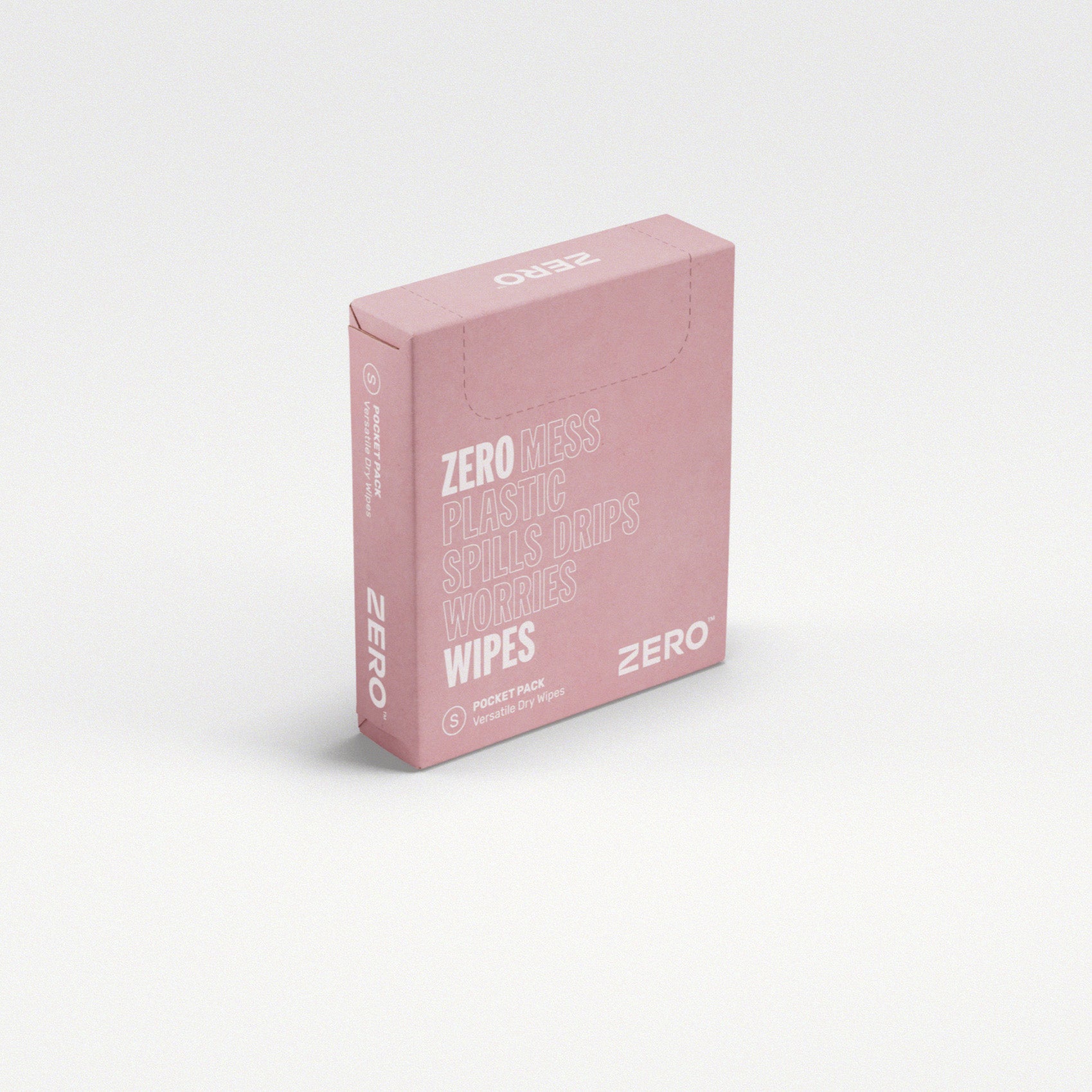When designing our dry wipes, we experimented with and researched extensively the most environmentally friendly and best-functioning fiber. Our result; is wood pulp.
Compostable, biodegradable, and made from 100% Natural Material. Whilst the same can be said about Cotton and Bamboo wipes; we have found that Wood Pulp is the natural material that has the smallest environmental impact across its whole lifecycle. With wipes being needed day-to-day and often only having single use; we believe choosing a fiber with the lowest environmental footprint from start to finish is the most ethical mode of production.
What is Wood Pulp?
Wood pulp spun lace non-woven is made from trees, taken from well-managed natural forests. Wood pulp is a renewable source of biomass produced from the kraft pulping process. The wood is broken down into its cellulose fibers for it to be transformed into our tissue. Because the wood pulp is a cellulose-based fiber it is incredibly absorbent. Don't be alarmed by the fact it is made from wood; this 60gsm wipe we have created is softer than cashmere in our opinion! Our wood pulp has superior strength compared to cotton wipes and can be used for baby's bottoms to tough stains on kitchen counters.
How is it better than other wipes?
The most common kind of baby wipes on the market currently contain some form of Polypropylene or made of Polyester. A staggering 90% of wet wipes contain polyester fiber! (Zhang et al., 2021) As a biobased product, wood pulp is reporting a “60% lower environmental impact compared to polypropylene” (Echeverria, 2021). Whilst we know polypropylene wipes are more cost advantageous, we know that producing wood pulp is not only bettering the environment but offers a better performance as a wipe! Choosing wood pulp over polypropylene wipes has endless benefits. The production of wood pulp wipes requires LESS fossil fuel depletion, LESS ozone depletion, LESS toxicity for the human health of those involved in the production, and the list goes on!
Lifecycle of Wood Pulp?
One thing we require of any product of the Zero Store is its ability to be compostable and 100% biodegradable. Synthetic wet wipes are a huge contributor to waste, especially in sewer systems, and we believe that there is no excuse for wipes ending up in a landfill. Any wipe made with synthetic fibers or chemicals will end up in a landfill as they are unable to biodegrade. Once you have finished using our wipe; either dry or wet, they can be composted at home or industrially. The wipe will be broken down in about 45 days. Our bio-based wipe not only outperforms the plastic-based wipe in lower resource consumption it reduces the contribution of plastics and microplastics in our environment.
Sources:
Echeverria, D. V. (2021). Process-Based Modeling Framework for the Life-Cycle Environmental, Economic and Social Sustainability Dimensions of Cellulose-Based Material. ProQuest Dissertations Publishing.
Yun, T., Cheng, P., Qian, F., Cheng, Y., Lu, J., Lv, Y., & Wang, H. (2020). Balancing the decomposable behavior and wet tensile mechanical property of cellulose-based wet wipe substrates by the aqueous adhesive. International Journal of Biological Macromolecules, 164, 1898–1907. https://doi.org/10.1016/j.ijbiomac.2020.08.082
Zhang, Y., Wen, Z., Lin, W., Hu, Y., Kosajan, V., & Zhang, T. (2021). Life-Cycle Environmental Impact Assessment and plastic pollution prevention measures of wet wipes. Resources, Conservation and Recycling, 174, 105803. https://doi.org/10.1016/j.resconrec.2021.105803
This Article is by Meg Fisher
Zero Wipes Sustainability & Product Development Lead
Bachelor of Commerce at UNSW
Bachelor of Design in Textiles UNSW
MS Candidate in Sustainable Fashion at GCNYC

Share:
Everything you need to know about Zero Plastic Free Dry Wipes
Clean Beauty: Switch out the plastic in your self care routine.